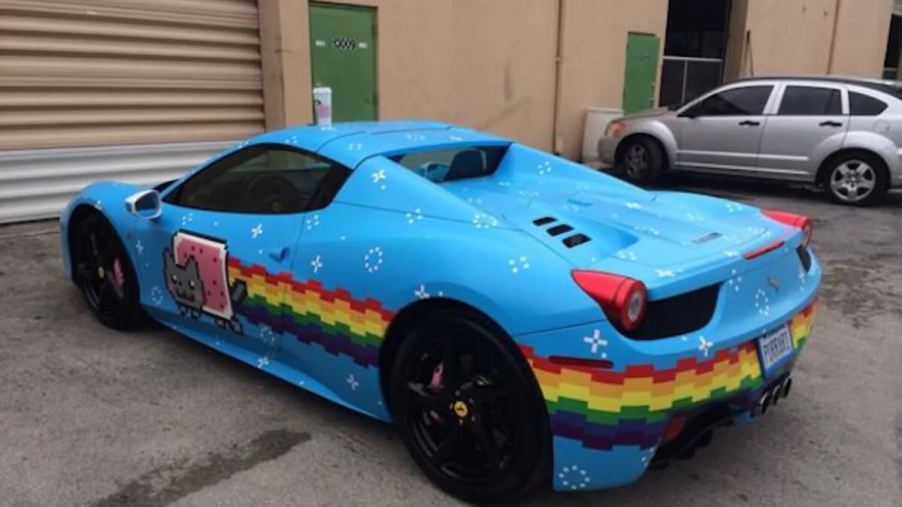
5 Times Ferrari Sued Its Own Fans
Ferrari is one of the world’s most iconic luxury sports car brands, known for its high-performance vehicles and loyal fan base. However, the Italian automaker’s and its fans’ relationship has only sometimes been smooth sailing. Ferrari has sued its fans several times, sparking controversy and even outrage among its followers. In this article, we will delve into five instances where Ferrari took legal action against its supporters. These cases, from trademark disputes to unauthorized merchandising, shed light on the complex relationship between a brand and its passionate fans.
Deadmau5 Purrari
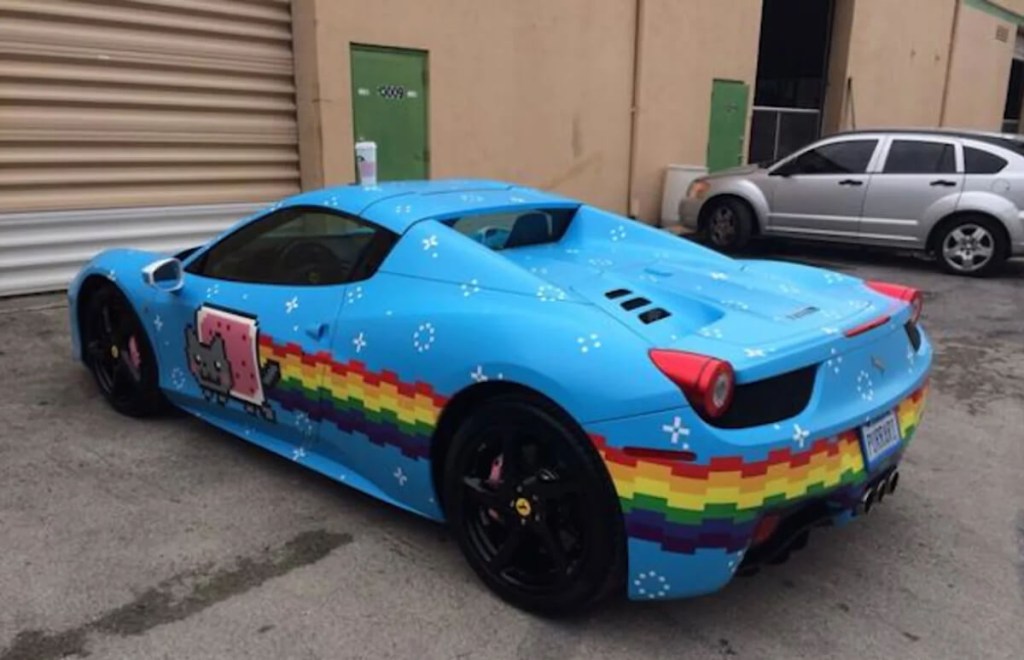
The Deadmau5 Purrari lawsuit involves a legal dispute between Joel Zimmerman and Ferrari. In 2014, Zimmerman purchased a Ferrari 458 Spider. He then customized it with a distinctive “Purrari” wrap featuring images of Nyan cat. Ferrari, however, was not amused by this modification. As a result, the brand sent a cease-and-desist letter to Zimmerman, claiming trademark infringement and dilution of the brand.
Zimmerman responded by posting critical tweets directed at Ferrari. It ultimately led to the company revoking his lease on another Ferrari he had been driving. The dispute was eventually settled out of court, with Zimmerman agreeing to remove the Purrari wrap. However, he also had to refrain from using Ferrari’s trademarks in the future. The Deadmau5 Purrari lawsuit is famous and has garnered worldwide attention.
Jean ‘Beurlys’ Blaton Ferrari F40 Barchetta
The Jean ‘Beurlys’ Blaton Ferrari F40 Barchetta lawsuit involved a rare and valuable Ferrari sports car with a fascinating history. Originally a 1 of 19 F40 LM, the car was damaged in a race. It was later rebuilt as a convertible by a Belgian car collector named Jean Blaton, also known as Beurlys. Blaton’s F40 Barchetta has a custom open-top design and features several unique modifications. However, the brand disputed Blaton’s right to modify the car.
The brand argued that it violated its intellectual property rights and damaged the vehicle’s value as a collectible. As a result, Ferrari took legal action against Blaton, and the case went to court in Belgium in 2005. The judge ultimately ruled Ferrari’s favor, ordering Blaton to remove all badging or pay a substantial fine. The Jean ‘Beurlys’ Blaton F40 Barchetta lawsuit highlights the importance of respecting the value of rare automobiles. However, where does the line get drawn?
Phillip Plein 812 Superfast
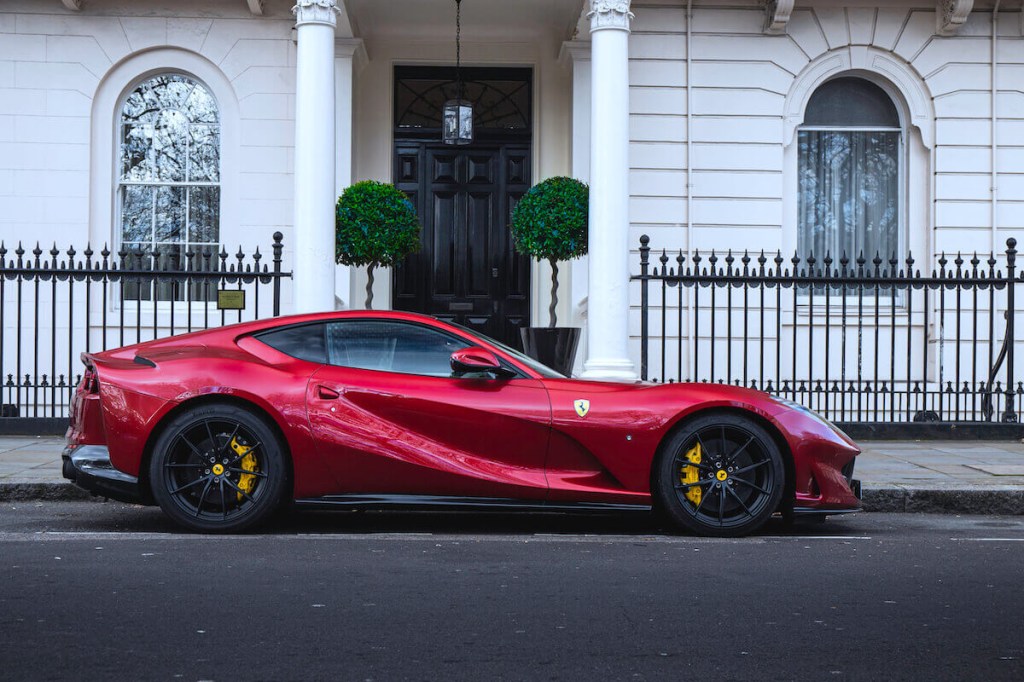
The Phillip Plein 812 Superfast Ferrari lawsuit involves a legal dispute between the Italian automaker and the fashion designer Phillip Plein. In 2018, Plein purchased a Ferrari 812 Superfast and customized it with a controversial wrap. In addition, he posted images of women in suggestive poses with the newly wrapped car. The automaker’s legal counsel argued that Plein was using the brand’s trademark in a manner that was “per se distasteful” and “tarnished the reputation” of Ferrari’s brands.
Despite the automaker’s objections, Plein refused to remove the images, and the case went to court. Unfortunately, the court ruled in favor of Ferrari. Plein was ordered to pay $1.3 million in damages and $28,300 in legal fees. The Phillip Plein 812 Superfast lawsuit is a prime example of the tension that can arise between artistic freedom and brand protection.
Purosangue Foundation charity
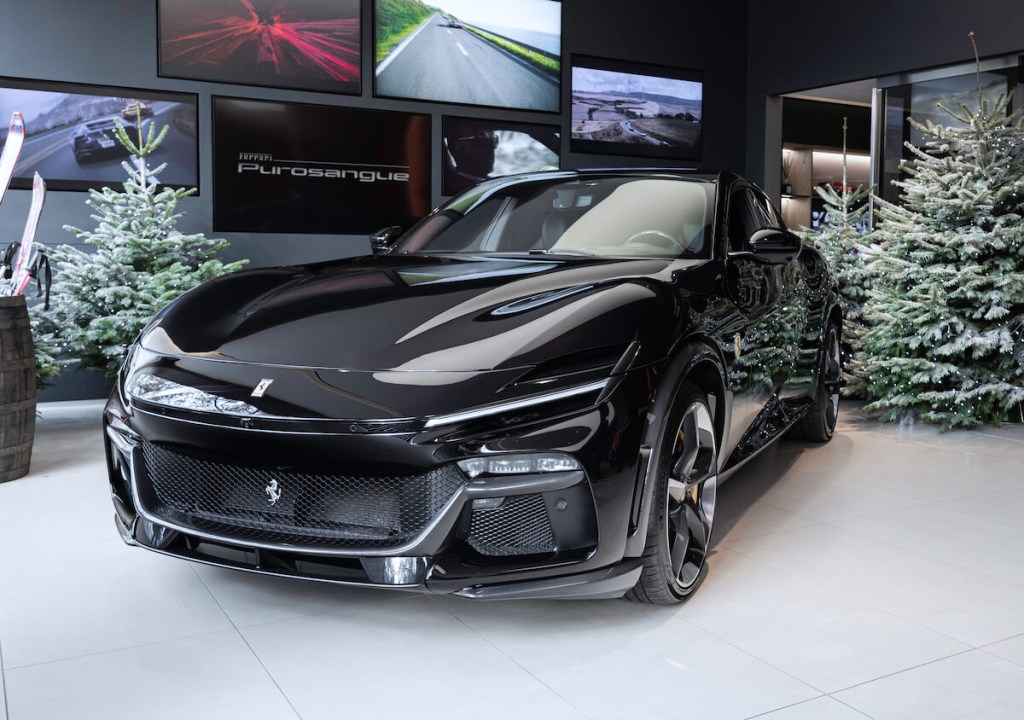
The Purosangue Foundation Charity found itself in a legal battle with Ferrari over using the name “Purosangue.” The foundation, which promotes health and fitness, has used the title since 2013. Ferrari approached the company as it wanted to use the name for its upcoming SUV. After not coming to a deal, the charity took legal action to block the brand from trademarking the name in Europe.
However, the automaker launched proceedings against the foundation, claiming it needed to make better commercial use of the name. The case ended in a court injunction against the charity, preventing them from using the name and logo. The Purosangue Foundation founder, Max Monteforte, expressed disappointment with the outcome, stating that there was plenty of evidence of their activities in recent years and that Ferrari should have done its research.
FerrariWiring.com and FerrariDiagrams.com
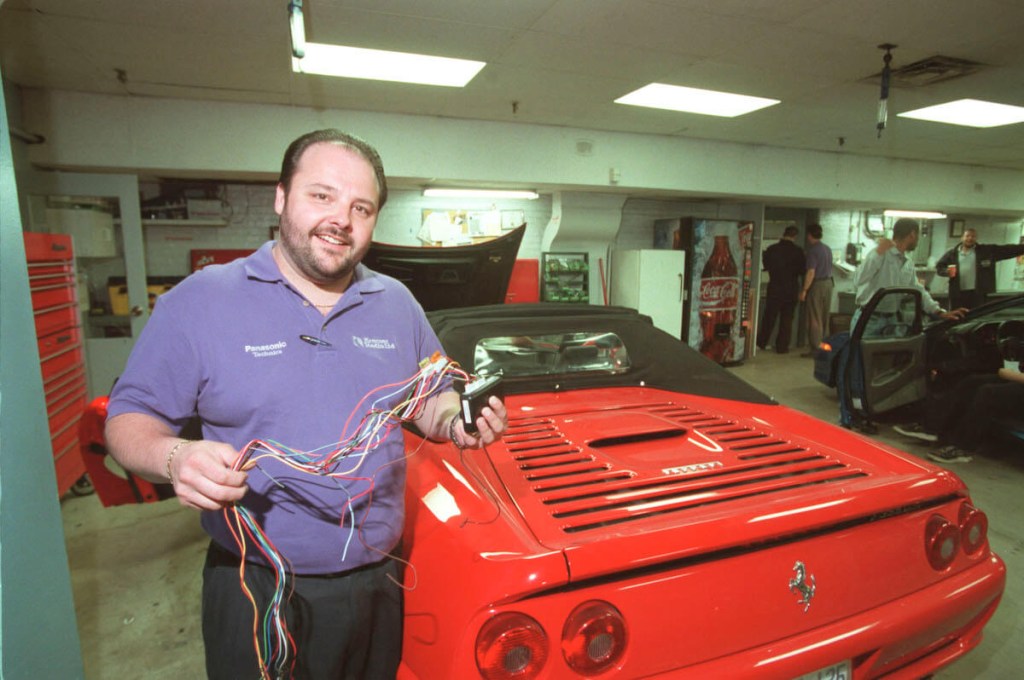
An enthusiast created and sold his own wiring diagrams for old Ferraris when he found that official ones were hard to understand and not readily available. So he registered the domains FerrariWiring.com and FerrariDiagrams.com and started using them to sell his diagrams. However, the joy was short-lived as the automaker sent him a cease and desist letter. The letter claims that he was using the brand’s intellectual property. These included trademarks and distinctive signs on his website, including the Prancing Horse Scudetto.
Although this was primarily fair on Ferrari’s part, they claimed the diagrams as their trademarks. It is unclear whether the owner worked it out or if the brand backed down, but the website still exists, and the URLs now redirect to it without any trademarked material. The website owner has also added a disclaimer stating that the domain has no association with Ferrari S.p.A.
Does Ferrari sue their customers?
In conclusion, Ferrari’s relationship with its fans has sometimes been rocky, as evidenced by the several lawsuits the automaker has filed against its supporters. These cases highlight the complex balance between brand protection and artistic freedom, trademark disputes, and the importance of respecting the value of rare automobiles. Yet, despite the legal battles, Ferrari remains one of the world’s most iconic luxury sports car brands, with a loyal fan base that continues to support its high-performance vehicles.


